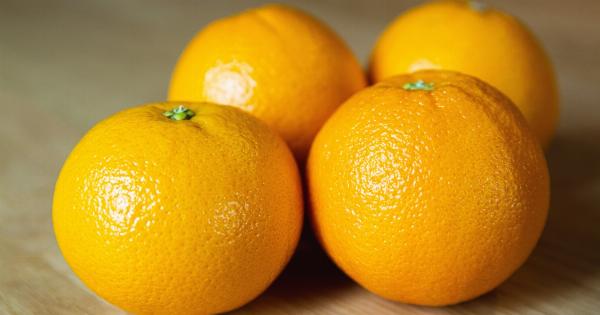Aging is a natural process that everyone experiences in their lifetime. While it is inevitable, there are ways to age gracefully and maintain good health and vitality.
One of the most effective methods is to pay attention to our diet and consume the right foods that promote longevity. In this article, we will explore the significance of aging gracefully and how incorporating certain foods into our diet can positively impact our well-being.
Understand the Aging Process
Before we delve into the foods that promote healthy aging, it is essential to understand the aging process itself. Aging is a complex biological phenomenon that involves the gradual deterioration of body functions over time.
As we age, our bodies undergo various changes, including a reduction in muscle mass, bone density, and metabolism. Additionally, our immune system weakens, making us more susceptible to diseases and infections.
Foods for a Healthy Aging Journey
While we cannot stop the aging process entirely, we can slow it down by making informed choices about our diet.
Consuming the right foods can provide essential nutrients and antioxidants that can protect our cells from damage and support overall well-being. Here are some highly beneficial foods that can help us age gracefully.
1. Berries
Berries, such as blueberries, strawberries, and raspberries, are packed with antioxidants and phytochemicals.
These compounds have been shown to combat oxidative stress and reduce the risk of chronic diseases, including heart disease and neurodegenerative disorders. Incorporating a handful of these colorful fruits into our daily diet can provide numerous health benefits.
2. Leafy Greens
Leafy green vegetables like spinach, kale, and broccoli are powerhouses of essential vitamins, minerals, and antioxidants.
They are particularly rich in vitamin K, which is crucial for maintaining bone health, and vitamin C, which supports the immune system. Additionally, leafy greens are low in calories and high in fiber, making them excellent choices for weight management.
3. Fatty Fish
Fatty fish, such as salmon, mackerel, and sardines, are excellent sources of omega-3 fatty acids. These healthy fats play a crucial role in maintaining heart health, reducing inflammation, and supporting brain function.
Including fatty fish in our diet at least twice a week can significantly contribute to our overall well-being.
4. Nuts and Seeds
Nuts and seeds are nutrient-dense foods that provide a wide array of health benefits. They are rich in healthy fats, fiber, and essential vitamins and minerals.
Regular consumption of nuts and seeds has been associated with a reduced risk of cardiovascular diseases, improved brain function, and better weight management.
5. Whole Grains
Whole grains, including brown rice, quinoa, and whole wheat bread, are excellent sources of dietary fiber, vitamins, and minerals. They are also low in fat and contain beneficial antioxidants.
Consuming whole grains can support digestion, reduce the risk of chronic diseases, and promote a healthy weight.
6. Yogurt
Yogurt is a probiotic-rich food that contains beneficial bacteria for gut health.
Maintaining a healthy gut microbiome is crucial for overall well-being and has been linked to various health benefits, including improved digestion, enhanced immune function, and better mental health. Opting for plain yogurt without added sugars or flavors is the best choice for maximum health benefits.
7. Olive Oil
Olive oil, especially extra virgin olive oil, is a key component of the Mediterranean diet and is known for its numerous health benefits.
It is rich in monounsaturated fats, which are heart-healthy fats that help reduce inflammation and lower the risk of heart disease. Using olive oil as the primary source of fat in cooking and salad dressings can benefit our overall health.
8. Colorful Vegetables and Fruits
Colorful fruits and vegetables, such as carrots, tomatoes, peppers, and oranges, are excellent sources of vitamins, minerals, and antioxidants.
The vibrant colors of these foods come from beneficial compounds like beta-carotene and lycopene, which have been associated with a reduced risk of chronic diseases, improved eye health, and enhanced skin vitality.
9. Green Tea
Green tea is rich in polyphenols, particularly catechins, which are potent antioxidants. Regular consumption of green tea has been linked to a reduced risk of heart disease, improved brain function, and lower inflammation levels.
Substituting sugary beverages with green tea can be a simple yet effective step towards healthier aging.
10. Dark Chocolate
Good news for chocolate lovers! Dark chocolate with a high cocoa content is not only delicious but also boasts several health benefits.
It is rich in antioxidants, specifically flavonoids, which can improve heart health, enhance cognitive function, and reduce the risk of chronic diseases. However, moderation is key as dark chocolate is still calorie-dense.
Conclusion
Aging is a natural process that we can navigate gracefully by incorporating the right foods into our diet.
Berries, leafy greens, fatty fish, nuts and seeds, whole grains, yogurt, olive oil, colorful vegetables and fruits, green tea, and dark chocolate are just a few examples of foods that can support healthy aging. By prioritizing our nutrition, we can age gracefully and maintain our vitality for years to come.






























